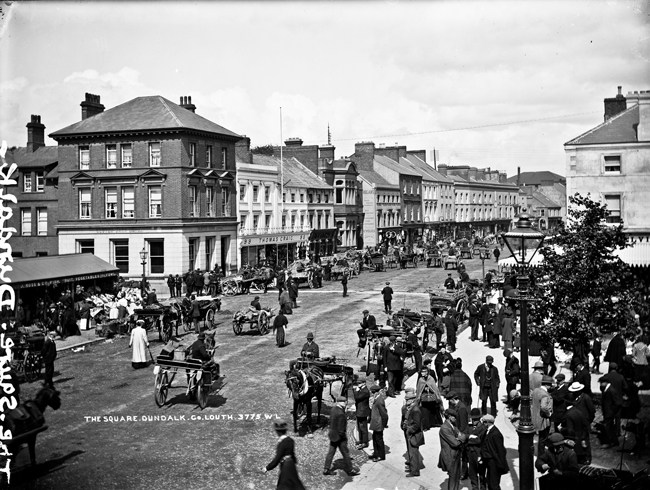Destruction of bridges, railway lines and businesses continues
Cork, 12 September 1922 – Reports from across the country indicate that attacks on homes, businesses and key infrastructure such as bridges and railways continue.
The Great Southern and Western Railway has reported serious disruption to their services after a bridge between Mallow and Buttevant was blown up and the Aherlow river bridge between Bansha and Cahir Station was burned down. Damage to the Aherlow bridge means that trains cannot run beyond Bansha in the Waterford direction. The Coole river bridge between Killaloe and Birdhill was also damaged by fire.
The blowing up of a road bridge near Dunkettle Station in Cork in the early hours of the morning on 10 September left nothing but rubble in its wake. The force of the explosion was such that it could be heard across Cork City and several houses shook with the ferocity of it.
Elsewhere wire lines have been cut and sections of railway line, such as at Curry Station in Co. Mayo and between Maryborough and Abbeyleix in Co. Laois, have been removed. Wires have also been cut between Tullamore and Geashill.
On the south-eastern railway line between Bray and Wicklow, a group of Irregulars was responsible for cutting telegraph wires. Some of them exchanged shots with National Army troops in the outlying areas of Bray.
In the north of the country, the blowing up of four bridges by Irregulars has left Dundalk cut off from a large portion of the surrounding countryside.
Businesses also targeted
Businesses in the country have also been targeted. In Co. Galway,
J. Gavin, a grocer and licensed vintner in Annaghdown, has
abandoned his house and shop as a consequence of repeated attacks,
which began on 5 January this year when his home was set on fire.
On 7 February, Mr Gavin’s windows were smashed. On 23
August, armed men raided his premises and removed a half barrel of
porter and tobacco. Then, on 31 August, the shop was effectively
stripped bare: only four bottles of stout were left.
A dance in Drogheda on 7 September was interrupted by rifle shots directed from the far side of the River Boyne. Officers of the Free State army who were in attendance at the dance advised the revellers to throw themselves on the floor after a man was hit in the leg.
When the firing subsided, the dance resumed. A waltz was started but was cut short when firing started again. The dancers again threw themselves on the floor but resumed their waltz once more as soon as the firing ceased.
In counties Limerick and Kerry, interruptions of a different kind were reported. As Fr Casey of Curraheen, Co. Limerick, was reading out a pastoral letter from the Bishop of Ardfert, Charles O’Sullivan, at Sunday mass on 3 September, a member of the congregation blew a whistle and walked out of the church, followed by others. At the end of the same Mass, a group of Irregulars commandeered the altar to deliver a theological homily on the nature of the obligation of an oath and moral law. Fr Casey said that the men were speaking on a subject about which they knew as much as did the sole of his boot.
A similar scene played out in different parts of Kerry when priests were interrupted while referring to outrages in their parishes. Walkouts by parishioners were reported to have occurred at Ballymacelligott and Clogher.
Prisoners
In a related development, a letter on behalf of IRA prisoners in
Mountjoy Jail has been sent to the Archbishop of Dublin, Edward
Byrne, highlighting the scandal of prison chaplains refusing to
give absolution to prisoners in confession unless they renounce
their ‘political faith’. In a letter to Dr Byrne,
dated 31 August, it is stated that the prisoners are soldiers of
the IRA who believe it to be their sacred duty to defend the Irish
republic, if necessary with their lives.
The letter, signed by Art O’Connor with an address at Mountjoy Prison, further asserts that:
‘In common with hundreds of thousands of the Irish people, and many of the people’s elected representatives, we deny the authority of the provisional government, and we respectfully submit that, if a priest holds an opposite view in this matter, he is not entitled to force his view as an article of Church’s teaching and withhold absolution from those who refuse to subscribe to it.’
British Pathé newsreel footage of guerilla warfare in Ireland 1922
[Editor's note: This is an article from Century Ireland, a fortnightly online newspaper, written from the perspective of a journalist 100 years ago, based on news reports of the time.]





















